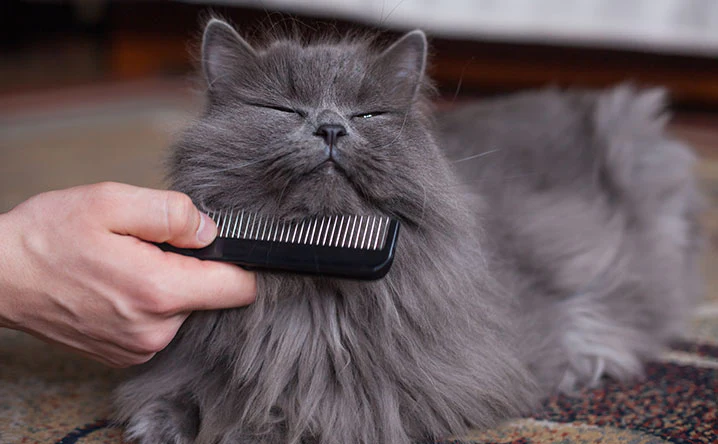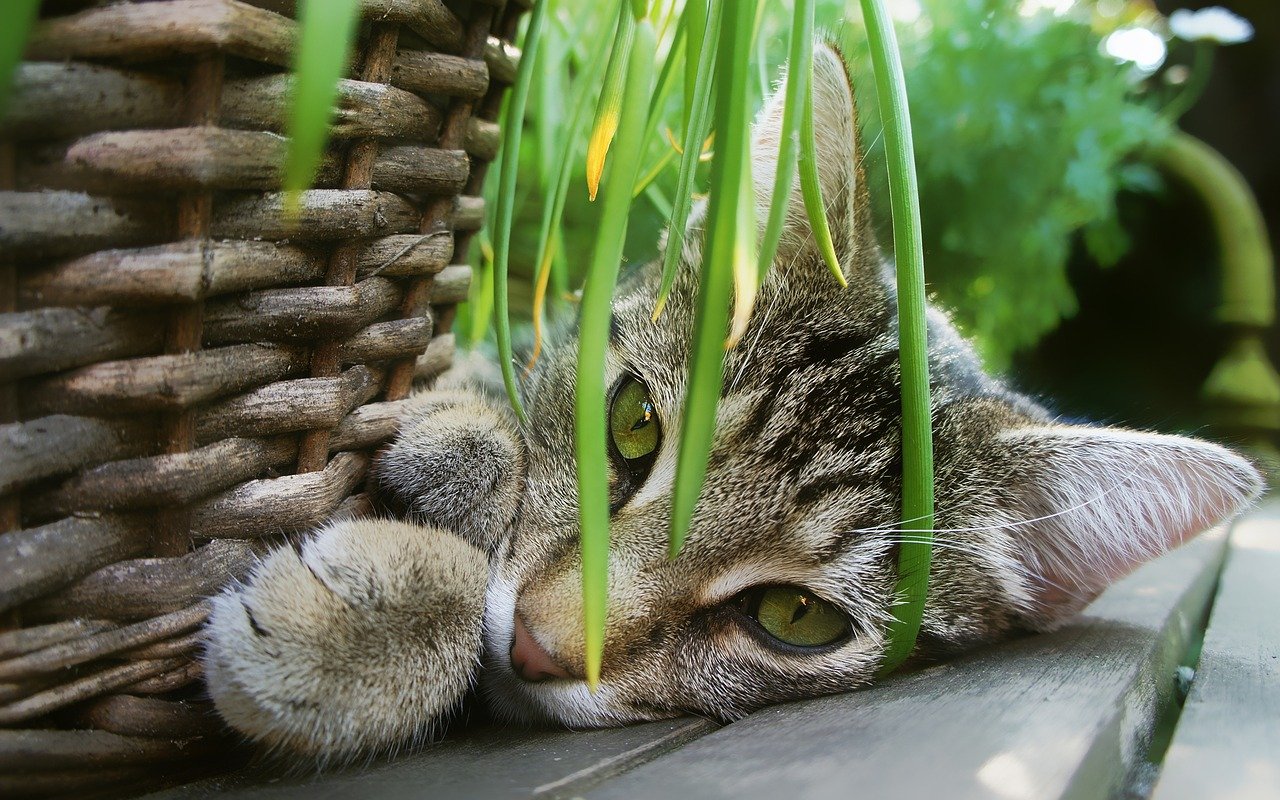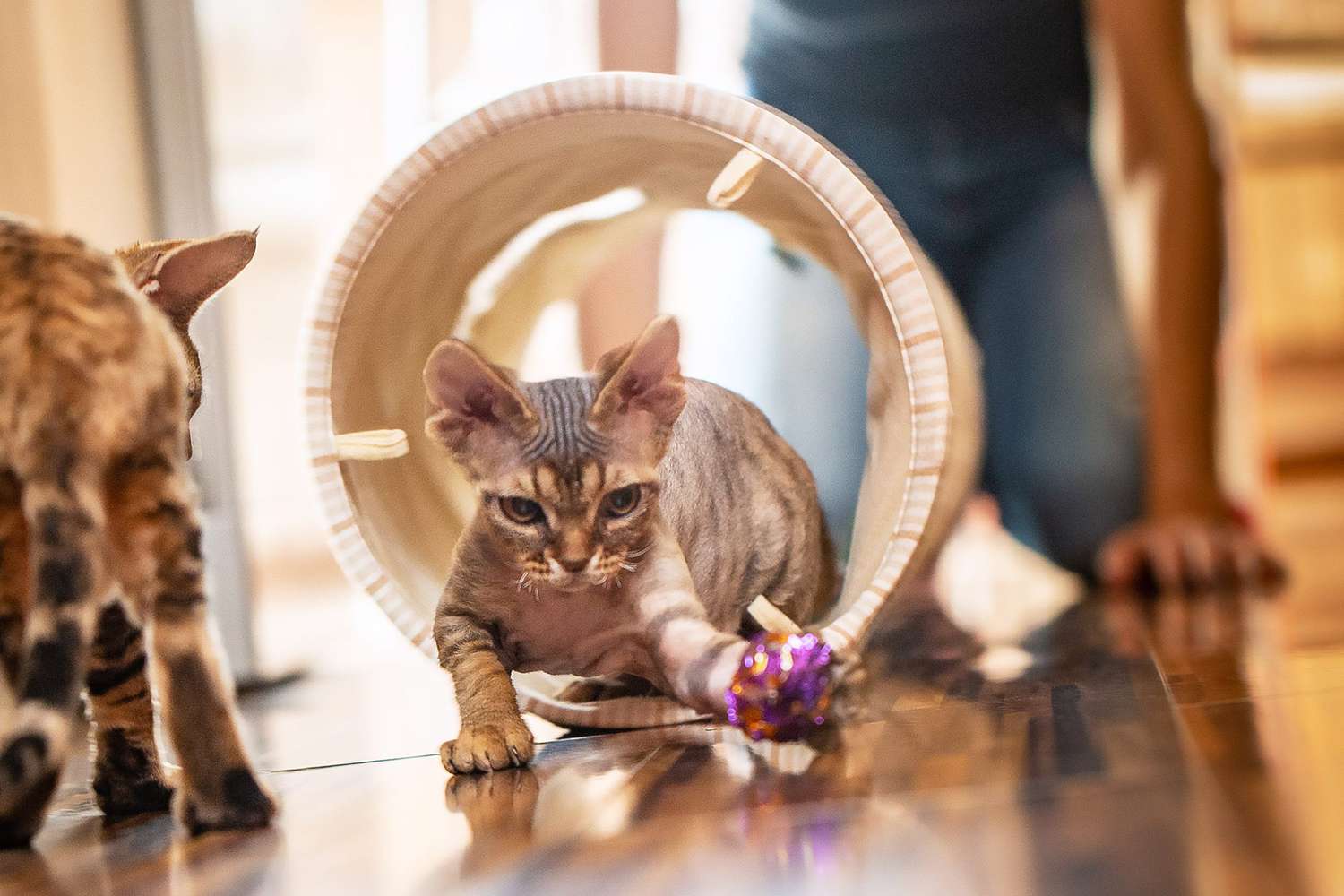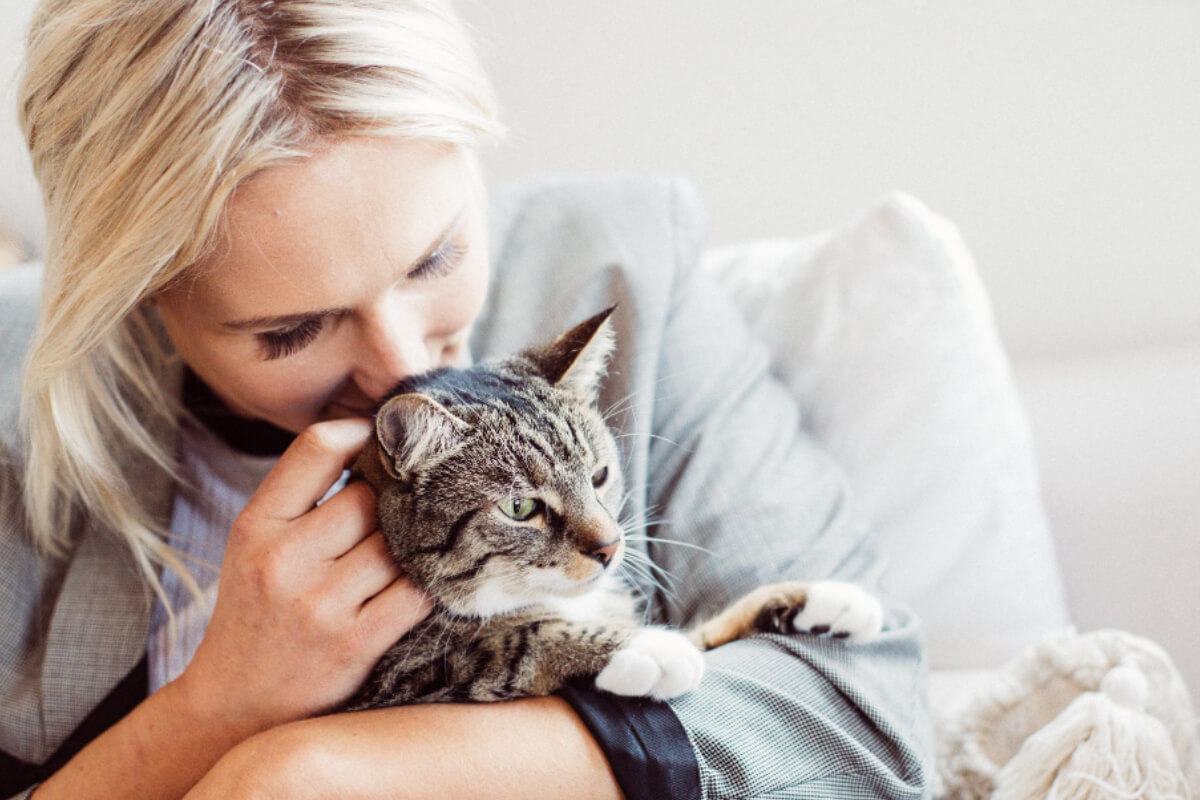Home Sweet Home: A Guide to Indoor Cat Wellness
Anúncios
For millions of cat owners around the world, taking care of the health of their pets is very important. While traveling outdoors is fun, many cat owners choose to keep their cats indoors to ensure they are protected from elements such as traffic, predators and disease. To ensure that your indoor cat can live a happy and fulfilling life, you need to ensure that its environment is conducive to its physical and mental health. This guide covers a lot about the health of indoor cats, from providing a stimulating environment to ensuring they receive proper nutrition and medical care.
1. Create a Space Your Cat Likes:
Top-Down Exploration
Cats like to climb and sit because it is in their nature to look for high places to see things. Providing your cat with elevated surfaces, such as cat trees, shelves and windowsills, allows him or her to explore and look around. This is good for their health and makes them happy because they are naturally interested.
Hidden Safe Haven
Cats like to have a good place to hide and to be alone when they need to be. You can provide your cat with a protected bed, den or even a cardboard box to curl up in. This will make them feel safe and at ease.
Views in Windows
Placing cat toys near a window allows indoor cats to observe birds, cars and other things happening outside. Exposure to natural light and interesting attractions is good for their mental health.
2. Play with Others and Stimulate Thinking:
Playtime Ritual
You should incorporate daily playtime with other cats into your cat’s daily routine. Use a feather wand, laser light, or jigsaw puzzle to do something that makes you feel like you’re hunting. Regular play not only keeps your body healthy but also keeps your mind active.
Puzzle Bag
Make mealtimes more fun with puzzle feeders or treat-dispensing toys. With this toy you can let your cat “find” food, keeping his mind active all day long.
Gymnastics Toys
Replace your cat’s toys regularly to keep the collection fresh and interesting. This will keep your cat from getting bored and keep him interested in the toy.
3. Nutritional Considerations:
Healthy Food
Cats that live indoors may have different nutritional needs than cats that live outdoors. Give them healthy, balanced meals that are appropriate for their age, weight and health. Talk to your vet about the best diet plan for your pet.
Provide Sufficient Water
Make sure your cat always has fresh, clean water to drink. For cats that prefer running water, you may want to invest in a cat water fountain so they can drink more water.
Observe Snack Intake
Although treats are fun for your cat, you should keep an eye on how much he eats. Too many snacks can cause you to gain weight and give up on your diet.
4. Items Necessary for Medical Care:
Visit Your Vet Regularly
Cats that stay indoors need regular visits to the vet. Regular check-ups can ensure that any health problems are detected early and ensure your cat’s overall health, even if he is not at risk outdoors.
Good Dental Health
A cat’s oral health is important to his or her overall health but is often overlooked. Brush your cat’s teeth regularly with toothpaste and a comb designed specifically for cats. Dental toys and treats can also help keep your teeth clean.
Get Rid of Parasites
Insects such as fugitives and ticks can even bite cats that stay indoors. Work with your vet to develop a good plan to keep parasites away from your cat.
5. Create a Calm Atmosphere:
Safe Place
Make sure your home is a safe and stress-free place. Cats don’t like things to change, so keep a regular schedule and give them a quiet place if something happens in the house.
Litter Box Care:
Your cat needs a clean litter box to stay healthy. Pick up trash every day, clean the bin regularly and place it in a quiet and easily accessible place.
Comfortable Resting Place
Place soft, comfortable bedding in different areas of your home. Cats like to have different places to rest, and a nice bed can make them feel generally happy.
6. Mental Health and Growth:
Films or TV Programs about Cats
Make your own “Cat TV” by playing movies made especially for cats. These films often feature birds, fish, or other animals that can keep a cat’s mind active.
Cat Grass and Catnip
Give your cat some catnip or grass every now and then. Your cat can play with this and get extra physical input from it.
Play with Others
If you have multiple cats, let them play with each other. Cats usually feel better when they play with each other, and playing helps cats form good social bonds.
Conclusion:
To ensure your cat has a quiet place indoors, consider his physical and emotional needs. Taking care of every part of your cat’s health, from providing a cat-friendly space to letting them play with other cats, is important for his overall health. Indoor cats need regular vet visits, a balanced diet and psychological exercises. By taking the time to understand your cat’s likes, dislikes, and needs, you can keep your cat indoors and ensure he thrives in a loving and stimulating environment.
FAQs:
1. Can indoor cats still live fulfilling lives?
Absolute. With proper care and attention, indoor cats can live rich and fulfilling lives. Providing a stimulating environment, interactive play and mental stimulation are key factors in ensuring their health.
2. How do I keep my indoor cat physically active?
Regular interactive play, using toys that mimic hunting behavior, and creating a cat-friendly space with opportunities for vertical exploration can all help keep indoor cats physically active and healthy.
3. What are the nutritional considerations for indoor cats?
Indoor cats can have different nutritional needs. Provide a balanced diet that suits their age, weight and health. Monitoring therapeutic intake and promoting adequate hydration are important aspects of nutritional care.
4. Do indoor cats need regular veterinary checks?
Yes, routine veterinary exams are crucial for indoor cats. Although they may not be at risk from the outside, regular visits can help detect any health problems early and ensure their overall well-being.
5. How can I create a stress-free environment for my indoor cat?
Maintain a consistent routine, provide a quiet place to rest, and make sure the litter box is clean and comfortable. These factors help provide your indoor cat with a stress-free environment that promotes their mental and emotional health.





